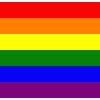Pierre Seel dies; bore witness to Nazi torture of gays
"By Matt Schudel / The Washington Post
December 3, 2005WASHINGTON -- Pierre Seel, who was imprisoned in a Nazi concentration camp during World War II for homosexuality and later broke decades of silence to speak out about the horrors he endured, died of cancer Nov.25 at his home in Toulouse, France. He was 82.
Arrested on suspicion of being a homosexual, Seel served six months in a prison camp before he was released and, improbably enough, drafted into the German army. After the war, he married and had a family and revealed nothing of his ordeal. When a French bishop railed against homosexuals in the 1980s, Seel reasserted his identity as a gay man and wrote a searing autobiography as one of the few surviving victims of a little-known chapter of wartime atrocity.
"He was born in the Alsace-Lorraine region of northern France near the German border and grew up in the city of Mulhouse, where his family ran a pastry shop. By his late teens, Seel was part of the city's gay subculture.
After German forces overran France in 1940, the Alsace-Lorraine was annexed by Germany and adopted German laws, including Paragraph 175, which prohibited sexual acts between men. Heinrich Himmler, director of Nazi Germany's secret police and network of concentration camps, declared that homosexuals should be eradicated.
On May 3, 1941, when Seel was 17, he was arrested by the Gestapo and tortured for 10 days. In his 1994 memoir, "I, Pierre Seel, Deported Homosexual," he described how he and other suspected homosexuals were beaten, had their fingernails pulled out and were raped with broken rulers.
Seel was sent to Schirmeck-Vorbruck, the only German concentration camp on French soil, where he said he was "tortured, beaten, sodomized and raped." He was forced to build crematoriums and to stand as the camp staff tossed syringes at him as if he were a dartboard.
The worst experience, he wrote, came when German troops marched a prisoner into the center of the yard, stripped him naked and placed a bucket over the man's head. Seel recognized him as his 18-year-old friend and lover.
According to Seel's book, German shepherd dogs were unleashed on his friend, tearing him apart and devouring him before hundreds of witnesses.
"Since then I sometimes wake up howling in the middle of the night," Seel wrote. "For fifty years now that scene has kept ceaselessly passing and repassing through my mind."
After six months, he was released and conscripted against his will into the German army. He was sent to the Russian front and later was wounded in battle in Yugoslavia.
Seel returned to Mulhouse after the war and worked at a fabric warehouse. He later owned a fabric store near Paris, and in 1968 settled in Toulouse as the manager of a chain of department stores.
In 1950, he married, and eventually had two sons and a daughter. He and his wife separated in 1978, and he fought a drinking problem and ailments caused by his captivity. In 1982, when the bishop of Strasbourg, France, denounced homosexuality as a sickness, Seel decided to come forward.
"As for myself," he wrote in his memoir, "after decades of silence I have made up my mind to speak, to accuse, to bear witness."
With the support of his wife and children, he told his story for the first time, finding a second career -- and a measure of personal satisfaction -- as a living witness to what had been an almost forgotten episode of persecution.
During the 1930s and 1940s, more than 100,000 men were arrested by Nazi authorities for presumed homosexuality, and many were forced to wear pink triangles, which a later generation adopted as a defiant symbol of gay pride. (In Seel's case, his prison uniform was marked with a blue bar.) Between 5,000 and 15,000 were interned in concentration camps, where more than 60percent of them died.
By publishing his memoirs in 1994 -- an English version appeared the following year -- Seel brought new recognition to the homosexual victims of the Nazi regime. Yet after he appeared on French television, the frail and aging Seel was attacked and beaten by young men shouting anti-gay epithets.
Five years ago, he recounted his story once more in an American-made documentary, "Paragraph 175," about the Nazi campaign against gay men.
"It was very difficult for him to revisit," Rob Epstein, the film's co-director, said in a telephone interview. "He was both incredibly gentle and incredibly tough."
Returning to Germany for the first time since the war, Seel received a five-minute standing ovation at the documentary's premiere at the Berlin film festival.
Survivors include his companion, Eric Feliu of Toulouse; his wife; and three children.
With Seel's death, researchers believe there are fewer than 10 homosexual survivors of Nazi internment camps still alive."






